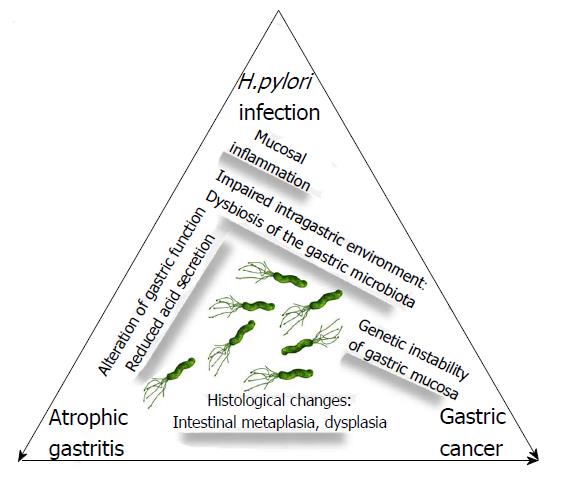Copyright
©The Author(s) 2018.
World J Gastroenterol. Jun 14, 2018; 24(22): 2373-2380
Published online Jun 14, 2018. doi: 10.3748/wjg.v24.i22.2373
Published online Jun 14, 2018. doi: 10.3748/wjg.v24.i22.2373
Figure 1 Helicobacter pylori infection, atrophic gastritis and gastric cancer are mutually linked conditions whose natural history may be changed by successful and timely eradication of the organism.
Long-standing Helicobacter pylori infection has serious negative effects on the gastric mucosa due to chronic mucosal inflammation leading to alterations in gastric function, such as impaired gastric secretion. These alterations create an intragastric environment that leads to dysbiosis of the gastric microbiota. The end result may be serious histological changes and genetic instability of the gastric mucosa, which in some cases may result in dysplasia and gastric cancer. The timely cure of infection may resolve inflammation, restore gastric functions and normalize the gastric microenvironment, potentially reversing histological damage as well as reducing or preventing the risk of gastric cancer.
- Citation: Lahner E, Carabotti M, Annibale B. Treatment of Helicobacter pylori infection in atrophic gastritis. World J Gastroenterol 2018; 24(22): 2373-2380
- URL: https://www.wjgnet.com/1007-9327/full/v24/i22/2373.htm
- DOI: https://dx.doi.org/10.3748/wjg.v24.i22.2373









